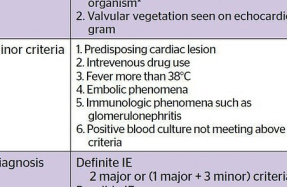Antimicrobial Resistance: A Battle Lost or a Challenging Conquest?

Aster Medical Journal held its inaugural AMJ antimicrobial resistance roundtable in Aster Medcity Kochi. Roundtable brought together clinicians, healthcare professionals, policymakers, pharmaceutical companies, academic researchers and NGOs. The expert panel discussed the wide range of issues that affects the antimicrobial resistance response.










Dr. Anup R Warrier: Before I start, I would like to take a poll. The title of this roundtable is “AMR - A Battle lost or a Challenging Conquest”. How many of you would go with the first term? The whole exercise is a battle lost? Anyone for that?
Mr. Sampath Kumar: Not yet
Dr. Anup R Warrier: Zero? Can I conclude that all of you are thinking of it as a challenging conquest? It is great to know we are optimistic. Since we represent a multitude of stakeholders, I am trying to take this from bottoms up. I want to start the discussion with Dr. Rajeev because he is a practising physician, besides holding the added responsibility of the Presidentship of the Indian Medical Association (IMA), at Kochi, which is a large association of practising doctors. He also has administrative responsibility in his hospital. So, he is the apt person to start off this discussion.
My first question to Dr Rajeev is, what are your observations regarding the awareness about the Antimicrobial Resistance? Does the “Antimicrobial Stewardship Program” come across as a solution among the doctors, especially among your IMA & Hospital colleagues, and various other people you come to face in your fraternity?
Dr Rajeev Jayadevan: Well, we are located in the town of Kochi, the academic capital of the State of Kerala; in a sense, we have a medical education program happening practically every day. Practising doctors meet in rooms like this and discuss academic topics. From that standpoint, the doctors in this part of the State are no strangers to the term Antibiotics Stewardship. Kochi is a town buzzing with academic activities, but that doesn’t represent the rest of India. So, I want you to keep in mind that distinction very clearly. Thus, the standard of practice around this area could potentially be of a higher standard than in the rural segments of the country where there is no access to CMEs.

I represent the Indian Medical Association as the President of the local chapter. We have several initiatives to reach out to doctors who are in practice. When I say the CME program, there is a set group of doctors who attend these programs. And there is a vast majority who never comes for these programs. That is our target. That is the group of people we need to be addressing. I always say that there is something called the seminar paradox. The seminar paradox is - that the people who attend the seminar are not the ones who need the seminar. The ones who need the seminar are always outside the seminar. So we must make ways for the ideas to reach the grass-root level.
Dr. Anup R Warrier: What do you believe are the challenges in managing this problem? What are the challenges in handling or managing AMR and getting proper compliance with the AMS initiatives and strategies in your hospital?
Dr Rajeev Jayadevan: Rational use of antibiotics is twofold. One side, they are often wrongly prescribed. The flip side is when they are needed; they are not prescribed. So, we need to address both sides. From a practising doctor’s standpoint, I would equate it to the garbage case in the country. I am sure you have travelled widely enough to see garbage piling up on the roadside. That is because; it is multifactorial. If you take a look at an area where garbage is piling up; you see one person going and depositing his junk, then you see another person seeing this person depositing junk, and says “Okay. Let me go and put mine as well”. Now you have two pieces of garbage. A third guy says, “Well, that is the official place to dump garbage!”, so, this is a self-fuelling process. Bad prescribing patterns work like this. Seeing your colleague prescribing or talking about antibiotic use for a mild condition or you see their notes. We see our patients, and we share similar notes, we learn passively seeing that an antibiotic is prescribed. We may not be learning actively. We learn the practice from other people. So when we see wrong practices around us, we tend to copy them. And we don’t have corrective measures often enough. We don’t have audits often enough to stop this copying process. So, this results in a large pile of garbage because when everybody thinks the other person is doing the right thing, then collectively, we are all doing the wrong things. That is the way I would equate the antibiotic prescribing practice in our country.
“Kerala has taken the lead in the AMR activities across the nation because Kerala was the first State to launch this.”
Dr. Anup R Warrier: Do you believe that good audits on the antibiotics prescription practices where you provide feedback to the prescribers would be some part of the solution?
Yes, but again, audits will affect only a small segment of the prescribing physicians. Because audits are typically in academic settings, but the vast majority of practice does not happen in an academic setting. If you ask me, what is the best way to reach out to them? When I say ‘them’, I do not mean somebody who knows less than me.
You’re reading a preview, subscribe to read more.
Start your free 30 days



